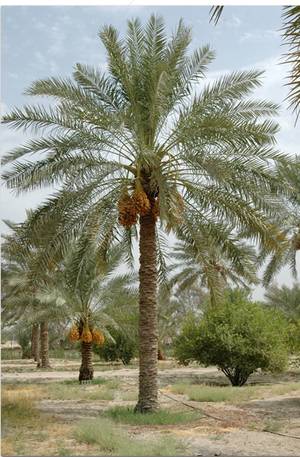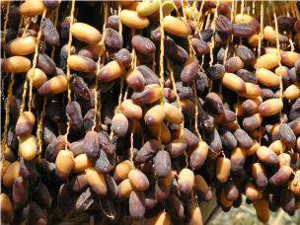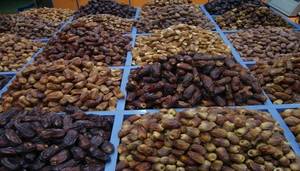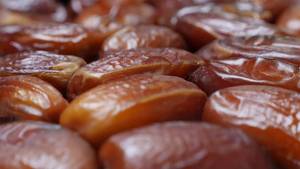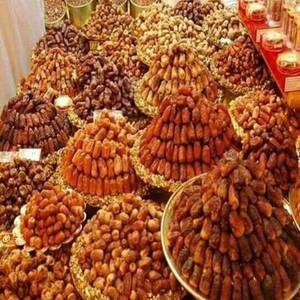Date Palm Value Chain Analysis for the Gulf Cooperation Council (GCC) Countries

Through the mapping of the chain, the overall objective was to identify the processes where values are created and how they are distributed among stakeholders along the entire date palm value chain. The method used in this analysis was based on an assessment of the data gathered from the multi-stakeholder surveys implemented in the three case studies of the GCC countries: Kingdom of Saudi Arabia (KSA), Oman, and Kuwait.
A special focus was devoted to policy instruments used by the Government to solve specific problems characterizing the chain and consequently enhance the development of the sector and see in particular to what extent those instruments are value creating.
The empirical findings reveal several problems and constraints that might affect the future of the GCC date palm sector. Therefore, development of a competitive supply date palm chain (both market and agribusiness development) could provide a greater contribution to the GCC economy if producers paid more attention to marketing of this very important food commodity. Hence, date palm production is no longer a way of life but nowadays is considered as an investment option and source of revenues for many stakeholders if the GCC region.
Date palm production
Date palm production is a strategic sector in most of the Arab countries including the GCC ones. The sector is one of the oldest economic activity in the Arabian Peninsula and continue to play a key role in the welfare, culture, history environment, and nutrition of its population. At present (in 2016), the Arab Region is the world leader of date cultivation with almost 75% of global area under date palm, around 77% of world production and approximately 69% of world total export of dates. In addition to the importance of dates for domestic consumption, this sector is also a source of employment, income generation, and trade in many of these countries. In some very arid areas, date fruit remains as an important source of subsistence and resilience for local population, given its adaptability to harsh environment and tolerance to high temperature, salinity, drought and other severe arid conditions.
The assessment of the date palm yields reveals that the average yield at the global level is around 6 tons/ha. In the GCC countries, the lowest average yields are in UAE, KSA, and Bahrain, with respectively 5.89, 6.38, and 7.56 tons/ha in the three countries. These yield values combined to the statistics on harvested areas makes Saudi Arabia the top producer of dates in the GCC region, with an average annual production of 885,542.8 tons/year, followed by UAE producing and average of 667,569.8 tons/year. It is clear that the productivity of the date palm tree varies within individual countries, and mainly depends on the agro-ecological systems, variety and farming system adopted.
Marketing systems
In the majority of GCC countries, date products’ marketing is dominated by local marketing process since export marketing, with the exception of UAE and KSA, is still a small percentage of local production. Domestic marketing of dates is free of direct government involvement and is sole responsibility of the private sector and to a lesser extent of the producers.
Several constraints and challenges are facing the local marketing channels of the date palm fruits. Such challenges are decreasing demand for date fruits, weak post-harvesting transactions, lack of appropriate and attracting boxes, no appropriate existing storage system till the marketing of fruits, lack of by-products markets, use of unimproved technologies for fruit packaging, no linkage between all key processing date palm actors, lack of expertise and technical staff for date palm manufacturing industries, rural-urban migration, urbanization, no feasibility studies regarding the profitability of the manufacturing industries of date palm products, and reluctance of investors to invest in the date palm sector.
International date palm markets
Although date trading share of GCC is increasing in the global market, they are still facing an important competition from the countries outlined above (Tunisia, Algeria, Iran, Pakistan, and Israel). The international markets are becoming very demanding in terms of standards and norms, mainly for the perishable products such as dates (as fruits) This will be a challenge for local producers to be competitive in the international markets. In 2015, since about 30% was the share of the GCC countries in the international date market, there is a strong potential for dominating the international date market.
This is feasible if there is a strong coordination on trade strategies between the GCC countries in terms of providing safe and secure products; adopting standard specifications and norms in the producing countries to reach the world market with distinct varieties reflecting the position of these countries in the production of date fruits; conducting studies to understand the international markets (volume, size, main competitors, marketing strategies, etc.), their needs, laws, regulations, and providing the information on the national key actors (producers, manufacturers, exporters, etc.), supporting and encouraging the participation of producing companies in the international trade fairs and with supporting exports policies, and finally conducting campaign on advertising and promotion of dates and its nutritional and healthy benefits through international meetings, conferences, festivals, and Attaché offices.
Policy implications, and recommendations
To enhance the growth of the date palm value chain in the GCC countries, three development strategies are to be considered towards a dynamic and systemic change:
Supply chain development and management
- Improving date palm farming practices and initiation of better post-harvest handling procedures;
- Processing and production of value-added products by focusing on added value varieties;
- Export premium date products with consistency in supply of high-quality varieties.
Market and marketing development
- Establishing a basic data on the local and export date marketing sector;
- Improve the efficiency of the marketing process to guarantee good prices to the farmers and to decrease the final market prices by limiting the number of intermediate operators;
- Producing in-demand products at competitive prices;
- A Pre-harvest Best Management Practices (BMPs) will certainly ensure that the quality standards for export are met.
Agri-business development
- Introducing of new potential uses of dates and date products in the pharmaceutical industries, confectionaries, agro-food industries, handcrafts and furniture,
- Support the investment for the Small Business Enterprises (SBE’s);
- Promoting the use of applied scientific research methods to improve processing quality and develop new processing and storage techniques.
For further contact:
Boubaker Dhehibi, Senior Natural Resources Economist, ICARDA ( [email protected] )
The project “Development of sustainable date palm production systems in the GCC countries of the Arabian Peninsula”, funded by the GCC Secretariat, was implemented, in partnership, by various ministries of agriculture, agricultural authorities, and agricultural research institutions and universities in the six GCC countries of the Arabian Peninsula (Kingdom of Bahrain, United Arab Emirates, State of Kuwait, State of Qatar, Sultanate of Oman, and Kingdom of Saudi Arabia - KSA) and the International Center for Agricultural Research in the Dry Areas (ICARDA).
The major objectives of the project were to improve date palm productivity per unit of water and rationalize the use of the available resources in order to make production sustainable.

